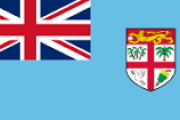Wednesday, 09 March 2022
Presenter:
H.E. Satyendra Prasad
Location:
New York
Mr President,
Mr Secretary-General,
Excellencies,
- I have the honour to make a brief statement on behalf of the 14 members of the Pacific Islands Forum with presence at the United Nations before making some additional remarks in my national capacity.
- We thank the United Arab Emirates for convening this aria formula meeting on climate finance and security, a subject of great importance to our Blue Pacific region, and wish you the best for your Security Council presidency.
- Our Forum members in New York reiterate our deep alarm at the ongoing crisis in Ukraine and repeat our call for an immediate ceasefire, safe humanitarian passage to affected areas and the urgent withdrawal of Russian military forces in accordance with internationally recognised borders.
Mr President,
- Our leaders will not tire of sounding the alarm over climate change and the danger it poses to the security of Pacific Island peoples. The Boe Declaration on Regional Security (2018), Fifty-First Pacific Islands Forum Communique (2021) and the Declaration on Preserving Maritime Zones in the Face of Climate Change-related Sea Level Rise (2021) together serve to promote an expanded concept of security, elevating climate security as the greatest single threat to security for Pacific Island nations.
- Our previous statements to this Council on climate and security underline this lived reality for our peoples – a reality which will further be reflected in our soon to be released 2050 Strategy for the Blue Pacific Continent.
- The Working Group II Report of the IPCC’s Sixth Assessment Report only increases our concern at the cascading effects of climate change on vulnerable countries– we especially note the report’s linkage between climate and continued conflict. We further highlight the disproportionate effects of climate change for the security of the already disadvantaged, the disabled and, fittingly as CSW66 convenes with a focus on climate, for women and girls.
- While we are encouraged by the growing recognition of the climate-security nexus among UN member states, we regret the use of the Security Council veto to block efforts to place climate firmly on the Security Council agenda, as was the case in this chamber on December 13, 2021.
- Climate change is a force multiplier, intensifying conflict and undermining security. The majority of Security Council-mandated peace operations are underway in countries most threatened by climate change. The use of the veto on and arguments in favour of a compartmentalised approach to these deeply interactive concerns hinders our efforts and weakens the ability of this Council to be effective in its mandate.
- While climate mitigation remains the most effective way to reduce climate impacts, investment is also needed to ensure vulnerable states can effectively adapt to the impacts of climate change which are already occurring. Building resilience, disaster risk reduction and adaptive capacity allows countries to better cope with climate-related events before they become security challenges.
- Vulnerable countries have been promised much in terms of climate finance but progress has been slow. Renewed climate finance pledges at COP26, the development of a Multi-dimensional Vulnerability Index for SIDS, inclusive and targeted finance mechanisms such as our own Pacific Resilience Facility, all have a role to play in keeping 1.5 alive- but wider efforts are required.
Mr President,
- We consider the actions of the members of this Security Council will also play an important role in our shared climate challenge. We therefore commend you for convening us today and look forward to further engagement on this issue.


